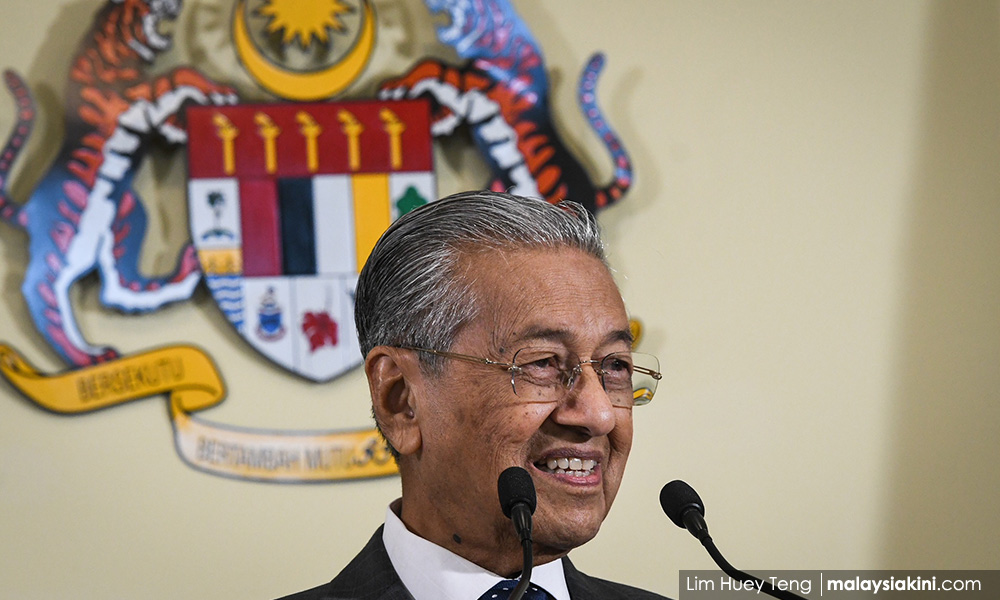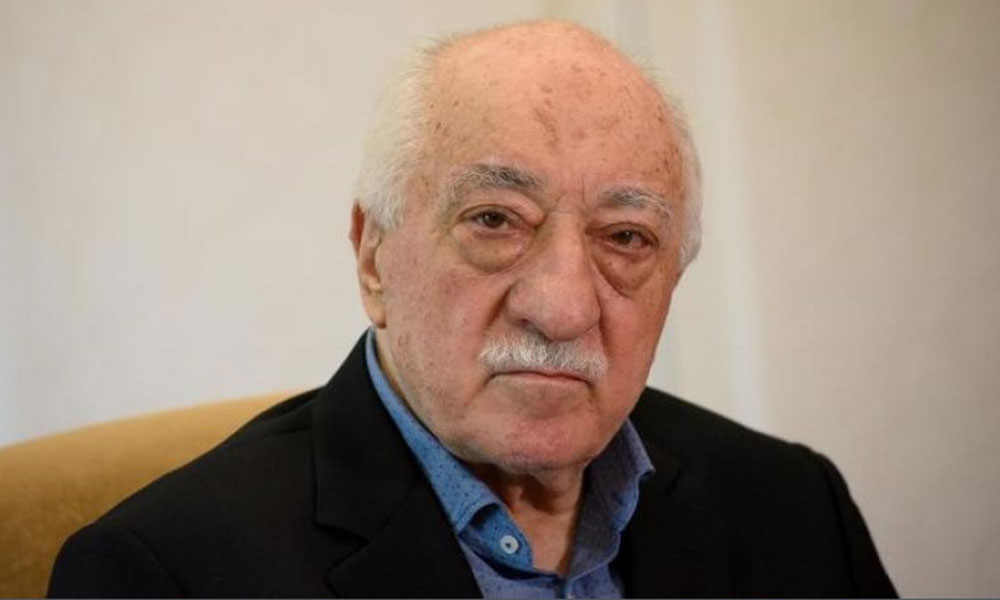COMMENT | Malaysia and Turkey are two among the fifty-odd Muslim-majority countries that have made great strides economically and democratically, albeit not without some serious headwinds.
Take the history of Malaysia, for example. Who would have thought that it could negotiate an end to the Confrontation against the bigger and more threatening Indonesia during the mid-1960s?
Who would have thought that despite an Emergency between 1948 and 1960, the Communist Party of Malaysia would lay down their arms peacefully consistent with the end of the Cold War in 1989? Yet Malaysia was able to achieve all these feats with relatively low casualties.
Turkey faced even more exposure to serious harm. After the end of the World War I in 1918, the victorious allied powers concluded signed the Treaty of Sèvres in 1920, and started breaking up the territory of the Ottoman Empire.
Most of the non-Turkish nationalities in the Ottoman Empire gained independence. While the Turks rejected this treaty and fought a fierce war against the Western imperialists, they managed to claw a great victory over them, especially in the Greco-Turkish War.
Subsequently, the Conference of Lausanne was held, which resulted in the signing of the Treaty of Lausanne to replace the Treaty of Sèvres, which was not recognised by Mustafa Kemal Atatürk’s government.
The parties of the treaty, which included the victorious powers of the First World War (Great Britain, France and Italy) agreed with the partition of the Ottoman Empire.
The latter, whose delegation was headed by İsmet İnönü, as a matter of strategic defence of the new republic of Turkey, consented to the division. It was on this basis on which the Ottoman Empire was divided, and the Turkish Republic was founded.
It is not without basis when current Turkish President Recep Tayyip Erdoğan said that its “opponents” forced it to sign the Treaty of Sèvres in 1920, and Lausanne in 1923.
Through such treaties, Turkey renounced sovereignty over Cyprus, Libya, Egypt, Sudan, Iraq and the Levant, except cities located in Syria, such as Urfa, Adana, Gaziantep, Kells and Mrash, and the Ottoman Empire relinquished for its political and financial rights related to Egypt and Sudan as of November 1914.
Fighting to get to the top
When Dr Mahathir Mohamad announced in 1990 that Malaysia would be a developed country by 2020, no one assumed he was being realistic. But with the destruction of the Ottoman Empire and its aftermath in the Middle East at the back of his mind, he knew Malaysia had to fight its way to the top.

When Mahathir proposed the Look East Policy, he knew that it was all about going against unfair contracts and treatment.
And if the battlefront was now the global market, Malaysia had to show strong and consistent growth – it had to keep up a growth rate of 7.5 percent per annum, three times higher than the average growth of the member states of European Community, and keep it up until 2020.
While the Asian Financial Crisis destroyed the trajectory of that dream, Mahathir did not imagine that the structure would be weakened further by kleptocracy.
Yet that was the fate of Malaysia between 2009-2018, which effectively robbed Malaysia of a decade’s growth. It led to Malaysia’s RM 1.09 trillion national debt, almost four times larger than that left behind by Mahathir when he retired in 2003.
Having reclaimed the mantle of the Prime Minister's Office from Najib Abdul Razak, Mahathir is poised to transform Malaysia once again.
Erdoğan’s election
Erdoğan is going into an election of his own today. There is some uncertainty over the parliamentary outcome, but the prospect of him winning the presidency, as things stand, looks very strong.
Like Mahathir’s Vision 2020, Erdoğan has lionised the country in terms of what Turkey can achieve through its Vision 2023. Erdoğan is hoping to transform Turkey into the sixth largest economy in the world, a feat comparable to the size of the entire GDP of the ten member states of Asean. How can this be achieved?
Turkey hopes to create 150,000 small and new businesses that can pulsate growth. While the projected growth is pegged at an incredible 15 percent per year, the ambition of Turkey has made it a force to contend within Eurasia. What Turkey has to do, however, is to overcome its reliance on any unnecessary debts.
As with Malaysia, low debt is critical to Turkey realising its vision. This was championed by former prime minister Adnan Menderes, who tried to transform the country into a major agricultural power in the late 1950s.
Erdoğan – not unlike Mahathir, who kept financial speculators at bay in 1997-1998 – had also weaned Turkey from the previous dependency on the International Monetary Fund, almost within the first decade of his rule.
While the Turkish president may have been faulted by the markets for calling for a low interest rate, causing the attack on the lira, which now stands at 4.7 to the dollar, the facts show that between 2002-2018, Turkey had become an economic power in Europe, North Africa and Eurasia.
For instance, when Massoud Barzani called for a referendum on September 25, 2017 to declare Kurdistan an independent state, it backfired. In real terms, northern Iraq could not break away, nor did Turkey sanction it, precisely because Erdoğan withheld his support – Barzani's government was heavily in debt with Turkish businessmen.
In this sense, one can also see why Sabah and Sarawak cannot choose to secede from Malaysia as local sentiments sometimes pretend to want, since Putrajaya is now under a no-nonsense nationalist like Mahathir. The parallels are real and stark.
Mahathir and Erdoğan
Also, Erdoğan and Mahathir have both been accused by the west for emasculating the democratic institutions in their respective countries. But between the pair, there have been close to 18 different elections that they won on their own merits.
Mahathir has won six general elections, of which five were received with a two-thirds majority in the parliament. Erdoğan has won twelve elections and one referendum.
As it stands, the May 9 victory of Pakatan Harapan was made possible by the strategic partnership of Mahathir and Anwar Ibrahim – with the latter now as the prime minister in waiting, while his wife Dr Wan Azizah Wan Ismail is fulfilling the role of the deputy prime minister of Malaysia.
Erdoğan, in turn, is trying to reform the presidential system to allow him to make the vision of 2023 a reality, as Turkey is surrounded by some of the most hostile regions and neighbours in the world.
Mahathir is not known for direct confrontation with radical militants, often preferring to use the language of science, democracy and modernity, while Erdoğan has been successful in using both reason and military operations to bring the separatists and elements of Islamic State in Turkey to book.
Erdoğan has tried to work with the Kurdish population in Turkey, often by liberalising the regime to allow Kurdish rights and freedom to prevail. But radical Kurdish groups like the Kurdistan Workers' Party (PKK) have resorted to armed military uprising to destroy the reconciliation process in 2014.
PKK has also spawned the Democratic Union Party (PYD) in the borders of Syria and northern Iraq, both of which President Erdoğan has had to deal with through Operation Euphrates Shield and Operation Olive Branch.
The fatalities of the Turkish military personnel have been less than 80 to date, which is a major success, as the borders of Turkey have been cleared of IS, PKK and Baathist elements close to the regime of Bashar Assad.

More importantly, Erdoğan has successfully purged the Fethullah Gülen (photo) movement, or what Ankara terms the Gülenist Terror Organisation (Feto) when the latter tried to launch a military coup on July 16, 2016.
The operation against Feto around the world remains on going, as it has become a clear and present danger to Turkey.
In more ways than one, Mahathir's successful handling of the kleptocratic elements under the Najib administration is no less dramatic, especially when the latter has caused the national debt of Malaysia to balloon – of which US$4.5 billion of criminal proceeds alone were laundered in the United States, according to the papers filed by the US Department of Justice.
When Anwar was in Istanbul earlier this week, he spoke of Turkey and Malaysia as two fine examples of how the countries can work hand in hand to inspire the Muslim world to rid itself of war and pestilence.
My own meetings with Erdoğan and his inner circles have also been very enriching experience, and I saw first-hand the similarities between Mahathir and Erdoğan. They are both seen as beacons of hope for the Muslim world.
Hence, this strategic partnership of Erdoğan and Mahathir, such a prospect is all the more vital, as both statesmen have always spoken of the importance of defending the ummah and the wider world that are still living under the thumb of neo-colonisation.
Indeed, the future will open up if Turkey and Malaysia know how to use the advantage of one another to enhance their strategic positions in Europe and Asia. Only by working together would they be able to unlock the economic promise of both regions, leading to huge win-win proposition for all sides.
RAIS HUSSIN is a supreme council member of Bersatu and heads its policy and strategy bureau.
The views expressed here are those of the author/contributor and do not necessarily represent the views of Malaysiakini.

